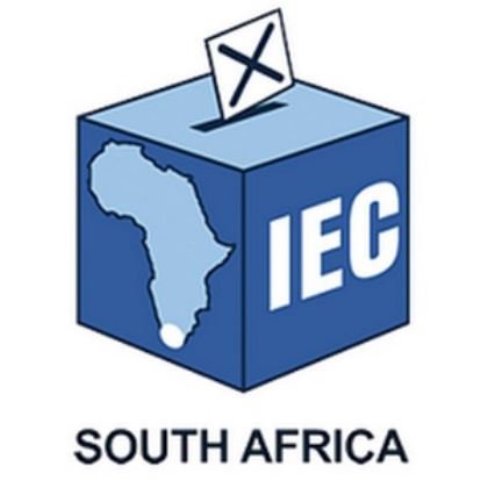Political parties, independent candidates sign IEC's Code of Conduct
The General Elections will be held on 29 May to elect a new National Assembly as well as the provincial legislature in each province.

- Country:
- South Africa
Political parties and independent candidates contesting the 2024 National and Provincial Elections have signed the Electoral Commission’s Code of Conduct committing to abide by the set of rules that are meant to ensure free and fair elections.
The General Elections will be held on 29 May to elect a new National Assembly as well as the provincial legislature in each province.
This will be the seventh general election held in the democratic dispensation since the end of the apartheid era in 1994.
In total, 325 political parties will be taking part in this year’s elections.
In his keynote address at the signing ceremony held in Midrand on Thursday, Electoral Commission (IEC) chairperson Mosotho Moepya said violations of the Electoral Code of Conduct can cast doubt on the legitimacy of election results, and lead to disputes and legal challenges.
“By complying with the code, political parties help to ensure that election outcomes are accepted as legitimate by all stakeholders, thereby contributing to political stability and social cohesion,” Moepya said.
Click here for the Electoral Code of Conduct.
Moepya said with freedom comes great responsibility. The Constitution affords political parties, independent candidates and citizens the freedom to contest elections for public office.
“Today's signing ceremony holds profound significance, as the country witnesses leaders of parties represented in the National Party Liaison Committee publicly pledge to abide by the Electoral Code of Conduct for the forthcoming elections.
“This code provides the framework for conduct consistent with the vision of democratic forebears, who envisioned a society at peace with itself and all its constituents. It is a statutory instrument for realising free and fair elections, requiring profound political leadership, as its observance reflects not only our commitment as democrats but also our collective dedication to orderly public affairs.
“As leaders, we bear the responsibility of guiding our nation towards a vision of peace and tranquillity,” Moepya said.
Rules and regulations
Moepya said beyond adherence to the code, political parties, independent candidates and citizens alike must actively promote awareness of the code's purpose and support efforts to educate voters.
Moepya said certain behaviours, such as inciting violence, intimidation, spreading false information or abusing positions of power, are strictly prohibited and must be met with swift accountability measures.
Moepya said upholding the provisions of the Electoral Code of Conduct reinforces democratic values such as tolerance, respect for diversity and the peaceful resolution of disputes.
“These values are essential for the functioning of a healthy democracy and fostering trust between citizens and their elected representatives.
“We know that political violence and intimidation can undermine the integrity of the electoral process and deter citizens from exercising their right to vote. By complying with the code, political parties help prevent such incidents and contribute to a peaceful electoral environment.
“The Electoral Code of Conduct also aims to ensure that all political parties and candidates have equal opportunities to campaign and communicate their messages to voters,” Moepya said.
30 Years of Democracy
Sy Mamabolo, the Electoral Commission’s Chief Electoral Officer, said as the country commemorates the 30th anniversary of democracy, it is vital to reflect on one of its abiding successes.
“Today, we stand before South Africa and her people to affirm our readiness to conduct an election which accords with the constitutional yardsticks and international norms.
“We give this affirmation of readiness, alive to the enormity of the challenge that rests on our hands. We stand ready to assiduously ensure that we do not let the motherland down for otherwise history will have a deleterious account of our charge of this task,” he said.
Most political parties had expressed their delight in taking part in the signing ceremony.
Sizwe Ummah Nation (SUN) party representative, Mondli Thulani Ncayiyane, commended the signing ceremony.
“The Electoral Commission has done a splendid job by coming with the Code of Conduct committing political parties to, among other things, denounce violence during the election period.
“As a party, we support the initiative and we hope that this is going to ensure peaceful elections in our country,” Ncayiyane said.
Echoing the same sentiments was Inayet Hussain Hassen from the Allied Movement for Change, who praised the IEC for the good work they have done in a bid to ensure peaceful elections.
“We are aware that it is not going to be easy for the voters as the ballot paper is going to be a big one, but we hope everything will be under control.
“The IEC has a good track record for conducting elections. We are confident that all the other political parties are going to uphold the Code of Conduct,” Hassen said.
Party lists
Last month, the Commission made available the lists of names of independent and political party candidates available for inspection at its national office, and at all its nine provincial offices and local municipal offices.
Parties intending to contest the elections were given an opportunity to revise their lists and inform the commission if they had nominated candidates who also appeared on the list of another party or who were nominated as independent candidates.
In all, there were 42 candidates appearing on more than one party list implicating 39 parties. Furthermore, one candidate was nominated as an independent candidate and also appeared on a list of a party.
The final list of candidates contesting the elections will be published by the Commission on 10 April 2024.
President Cyril Ramaphosa announced in February that South Africa will head to the polls on 29 May 2024 for the General National and Provincial Elections.
(With Inputs from South African Government Press Release)
- READ MORE ON:
- National Assembly
- Mosotho Moepya









